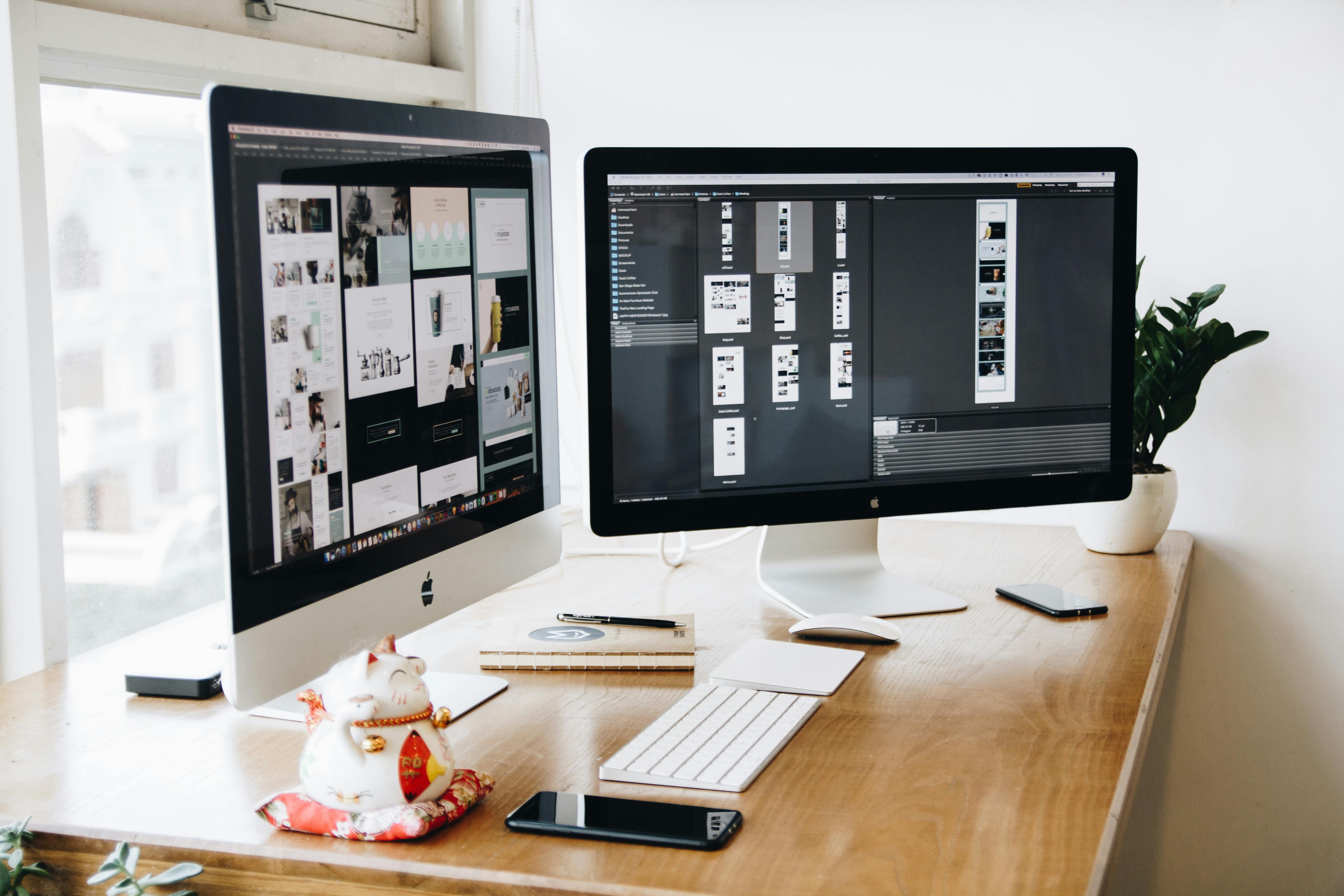Building a website is more than just about good looks, it’s about creating a fast, scalable, and engaging digital experience that reflects your brand’s personality. Webflow has emerged as one of the most powerful no-code platforms for modern web design, empowering businesses to launch beautiful, functional websites quickly.
But here’s the catch - while Webflow simplifies web development, finding the right Webflow developer can be tricky. A skilled professional can transform your vision into a dynamic, high-performing website. On the other hand, hiring the wrong person might cost you time, money, and opportunities.
So, what are the things to consider when hiring a Webflow developer? Let’s dive in.

Understanding the Role of a Webflow Developer
What Does a Webflow Developer Do?
A Webflow developer designs, builds, and optimizes websites using Webflow’s visual editor. They combine creativity and technical know-how to create responsive, SEO-friendly sites that perform flawlessly across devices.
Their responsibilities typically include:
- Designing visually appealing layouts.
- Building CMS collections for dynamic content.
- Implementing animations and interactions.
- Ensuring responsive design.
- Integrating third-party tools (like CRM systems, analytics, and forms).
Webflow vs. Traditional Web Development: A Quick Comparison
Unlike traditional developers who write code manually, Webflow developers use a visual interface to build and deploy sites faster. Yet, top developers still understand HTML, CSS, and JavaScript to extend Webflow’s capabilities when needed.
Key Factors to Consider Before Hiring a Webflow Developer
1. Technical Expertise and Proficiency in Webflow
The first aspect to assess is the developer's technical expertise. Inquire about their experience with Webflow Designer, CMS, and integrations. A certified Webflow Expert often guarantees quality and professionalism. Additionally, ensure the developer adheres to the Finsweet Client First Naming convention or Similar framework.
2. Portfolio and Design Quality
Always review their portfolio. Look for creativity, consistency, and how well past projects align with your brand’s aesthetic. Good developers showcase real results, not just templates.
3. Understanding of SEO and Performance Optimization
Your developer must know how to optimize meta tags, structure, and site speed. A stunning site is useless if it doesn’t rank well or load fast.
4. Knowledge of Custom Code and Integrations
Although Webflow is no-code, advanced projects often require custom code for added functionality. Developers skilled in JavaScript and API integrations stand out.
5. Responsiveness and Mobile-First Design Skills
Your site must look great on all devices. Test their projects across screens — a good developer ensures seamless mobile performance.
6. Communication and Project Management Skills
A great developer communicates clearly, sets expectations, and manages deadlines. Collaboration tools like Notion, Slack, or Trello are a plus.
7. Experience with CMS and Dynamic Content
For blogs, portfolios, or eCommerce, CMS setup is key. Ensure your developer knows how to structure collections efficiently.
8. Familiarity with UI/UX Principles
Beyond visuals, a Webflow developer should understand user experience design — creating sites that engage and convert visitors.
9. Pricing Structure and Budget Transparency
Clarify payment models: hourly, project-based, or retainer. Transparency prevents budget overruns later.
10. Client Testimonials and References
Nothing beats word-of-mouth credibility. Ask for client feedback or references to validate their work quality.
How to Evaluate a Webflow Developer’s Portfolio
What to Look for in Design Aesthetics
Assess color harmony, layout balance, and creative flair. Does the design align with your brand’s tone?
Reviewing Functionality and Interactivity
Explore features - from smooth animations to intuitive navigation. Functional polish matters as much as visuals.
Assessing Branding Consistency and Creativity
Ensure the developer can adapt to your branding style, not just repeat a single design pattern.
Common Mistakes Businesses Make When Hiring Webflow Developers
Ignoring Communication Skills
Even the most talented developer can struggle if communication falters. Misunderstandings cause delays and rework.
Overlooking SEO and Site Speed Optimization
Neglecting technical SEO or image optimization leads to poor search rankings and frustrated users.
Choosing Based on Price Alone
Cheaper isn’t always better. Consider long-term value and reliability over short-term savings.
Questions to Ask Before Hiring a Webflow Developer
Technical and Design Questions
- What’s your process for building responsive layouts?
- Can you integrate custom code or APIs if needed?
Process and Timeline Questions
- How long will my project take?
- What milestones will we use to track progress?
Support and Maintenance Questions
- Do you provide ongoing maintenance after launch?
- How do you handle post-launch bugs or updates?
How to Find the Right Webflow Developer
Freelance Platforms vs. Webflow Experts Directory
Use Webflow Experts (official directory) for vetted professionals, or platforms like Upwork for budget flexibility.
Agencies vs. Independent Developers
Agencies offer a team approach, while freelancers may provide a more personalized touch.
Red Flags to Watch Out For
Avoid developers who:
- Don’t offer contracts.
- Lack a visible portfolio.
- Promise unrealistic timelines.
Cost of Hiring a Webflow Developer
Average Rates and Pricing Models
Webflow developers typically charge between $50- $150/hour depending on expertise and region.
Factors That Influence Cost
Complexity, animations, CMS setup, and custom integrations can increase pricing.
Getting the Best Value for Your Money
Request clear proposals and scope documentation. Always balance quality and affordability.
Benefits of Hiring a Professional Webflow Developer
Improved Website Performance and UX
A skilled Webflow developer ensures your site runs fast, looks great, and provides a smooth user experience.
Faster Turnaround and Scalability
With Webflow’s tools, projects can go from design to deployment much faster than traditional coding.
Long-Term Support and Maintenance
Many developers offer retainer plans for continuous updates and optimization — ideal for growing businesses.
FAQs About Hiring a Webflow Developer
1. How do I know if a Webflow developer is qualified?
Check their certification, portfolio, and client reviews for credibility.
2. How long does a Webflow project usually take?
Most take 2-6 weeks depending on complexity and features.
3. Can Webflow handle large websites or eCommerce?
Yes, Webflow’s CMS and integrations make it suitable for complex, scalable sites.
4. Is Webflow better than WordPress?
For design flexibility and speed, yes. However, WordPress offers more plugin options.
5. What questions should I ask before hiring?
Ask about SEO skills, support policies, and custom code capabilities.
6. Should I hire a freelancer or an agency?
Freelancers are cost-effective; agencies offer a broader skill set. Choose based on your project scope.
Conclusion: Building Success with the Right Webflow Partner
Hiring the right Webflow developer can make or break your website project. By considering technical expertise, communication, design quality, and cost transparency, you set your business up for online success.
Invest the time to evaluate portfolios, ask smart questions, and ensure you’re working with someone who truly understands your vision.
.png)




